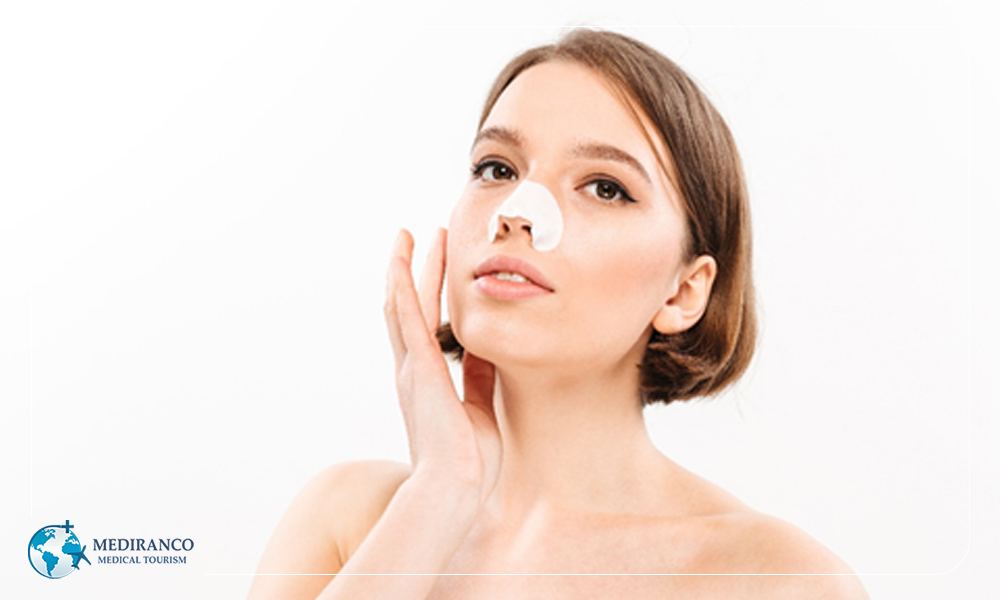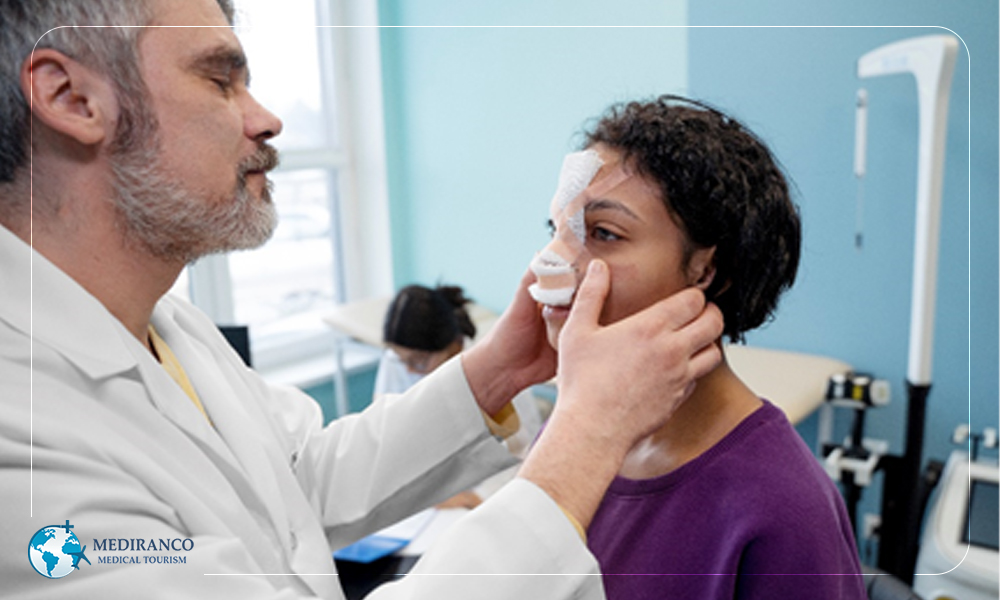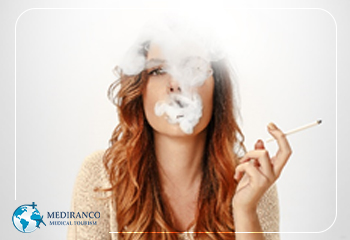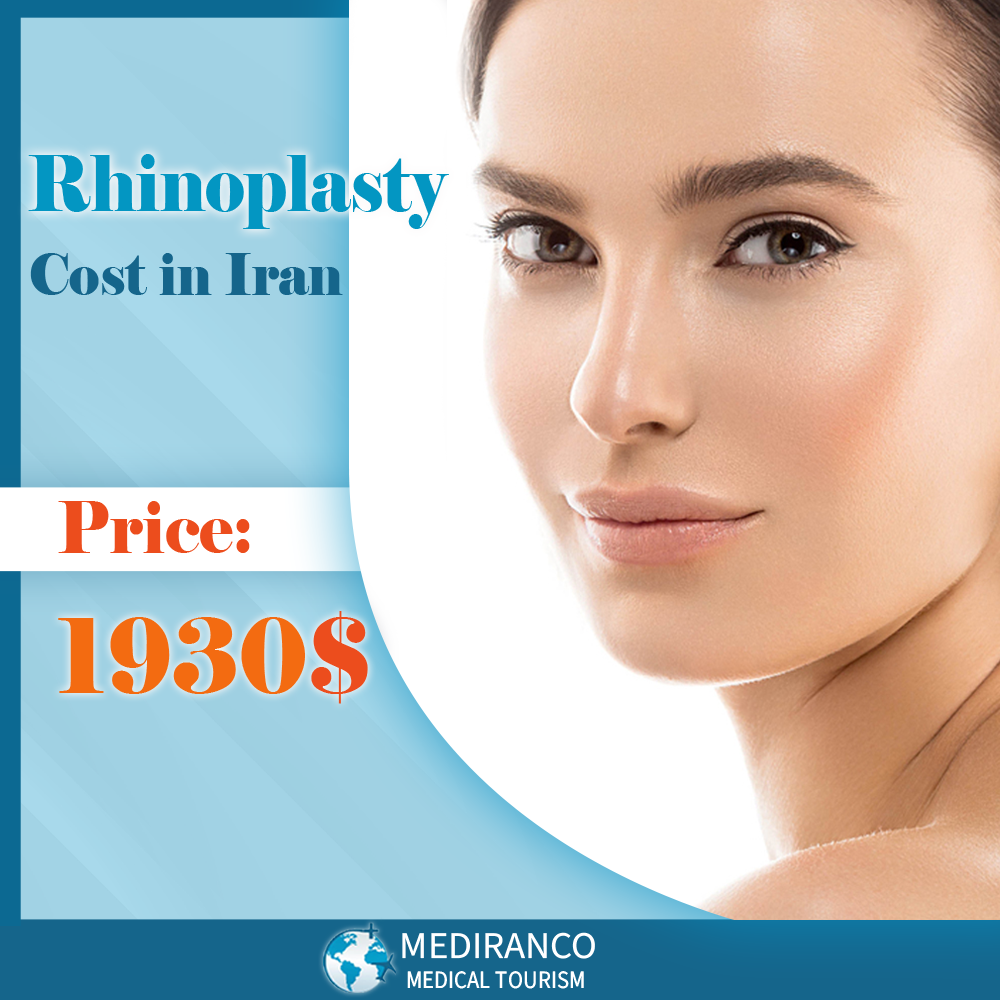The question on the safety of smoking after undergoing rhinoplasty (nose job), is one that deserves careful consideration. In short, it is generally recommended to avoid smoking for a minimum of two to four weeks after rhinoplasty. This timeframe allows for the initial stages of healing, reducing the risk of complications and promoting optimal recovery. In this article, we will delve into the potential risks associated with smoking during the recovery period following rhinoplasty.
At Mediranco, we know that each person’s nose is different, so we take a personalized approach to help you get the results you want.
Our team of experienced surgeons is skilled in rhinoplasty techniques, and they will choose the best method for you based on your nose shape, goals, and what you prefer.
We are dedicated to making sure you achieve a natural-looking outcome while also prioritizing your safety. That’s why MEDIRANCO is known for being excellent in the field of rhinoplasty.
Table of Contents
ToggleIn this article, our focus will be on exploring and delving into the following topics:
- What is the impact of smoking on the healing process?
- What are the risks associated with smoking after undergoing a rhinoplasty procedure?
- Why is it important to avoid smoking, particularly after a surgical procedure like rhinoplasty?
- Conclusion
In the world of cosmetic surgery, rhinoplasty, commonly referred to as a “nose job” is a popular procedure that aims to enhance the shape and function of the nose. While undergoing rhinoplasty is a personal decision, it is important to consider the impact of smoking on the healing process and overall safety.
The question on the safety of smoking after undergoing rhinoplasty, a popular cosmetic surgical procedure for nose enhancement, is one that deserves careful consideration. In short, smoking after rhinoplasty is not safe and can have adverse effects on the healing process and overall outcomes. Understanding these risks is crucial for patients to make informed decisions and take necessary precautions to ensure a successful and complication-free recovery.
What is the impact of smoking on the healing process?
Section 1:

Smoking, with its harmful chemicals like nicotine and carbon monoxide, can impede the body’s natural healing processes. When it comes to rhinoplasty, smoking poses significant risks due to its effects on blood circulation and oxygen supply to the surgical site. The chemicals in tobacco smoke constrict blood vessels, reducing blood flow and impairing the delivery of vital nutrients and oxygen to the nose.
Consequently, this compromised blood supply can lead to delayed wound healing, an increased risk of infection, and tissue necrosis.
Additionally, smoking weakens the immune system’s response to surgery, making it less efficient in combating potential infections. This weakened immune response further raises the chances of post-operative complications.
What are the risks associated with smoking after undergoing a rhinoplasty procedure?
Section 2:
Smoking after rhinoplasty can undermine the desired outcomes of the procedure and pose several risks. It is essential to be aware of these potential complications:

Infection: Smoking introduces harmful bacteria to the surgical incisions, significantly increasing the risk of infection. The compromised blood flow caused by smoking hampers the body’s natural ability to fight off infections, further exacerbating the problem.
Poor Wound Healing: Smoking impedes blood circulation and reduces oxygen supply to the surgical site, hindering the healing process. This can result in delayed wound healing, prolonged recovery time, and increased scarring, leading to suboptimal aesthetic results.
Compromised Results: Rhinoplasty aims to achieve optimal aesthetic outcomes, but smoking can undermine these goals. The chemicals in tobacco smoke negatively affect collagen production, which is crucial for tissue healing. As a result, smoking can lead to unfavorable scarring, skin discoloration, and poor nasal contour.
Increased Swelling and Bruising: Smoking can exacerbate post-operative swelling and bruising. The heat and toxins inhaled while smoking irritate the nasal passages, causing increased inflammation and discomfort, ultimately prolonging the recovery period.
Why is it important to avoid smoking, particularly after a surgical procedure like rhinoplasty?
Section 3:
Understanding the risks associated with smoking after rhinoplasty underscores the significance of avoiding smoking during the recovery period. Here are some key reasons to quit smoking:
Enhanced Healing and Reduced Complications: Quitting smoking allows blood vessels to expand, improving blood circulation and oxygen delivery to the surgical site. This enhanced blood flow facilitates wound healing, decreases the risk of infection, and supports a smoother recovery process.
Improved Aesthetic Results: Smoking interferes with collagen production, a vital component for healthy skin and tissue. By quitting smoking, individuals can improve collagen production, resulting in improved skin elasticity, reduced scarring, and better overall aesthetic results.
Long-Term Health Benefits: Quitting smoking offers numerous long-term health advantages beyond the recovery period. It significantly reduces the risk of cardiovascular diseases, respiratory complications, and various types of cancer. By quitting smoking, individuals enhance their overall well-being and diminish the likelihood of future health issues.

Conclusion

In conclusion, smoking after rhinoplasty poses significant risks and can compromise the healing process, aesthetic outcomes, and overall recovery. However, it’s important to note that the exact duration of abstinence from smoking may vary based on individual factors and the specific recommendations of your surgeon. It is crucial to consult with your plastic surgeon for personalized advice tailored to your unique situation. They can provide you with the most up-to-date guidelines and specific instructions on when it is safe to resume smoking after rhinoplasty.
However, it’s important to note that the exact duration of abstinence from smoking may vary based on individual factors and the specific recommendations of your surgeon. It is crucial to consult with your plastic surgeon for personalized advice tailored to your unique situation. They can provide you with the most up-to-date guidelines and specific instructions on when it is safe to resume smoking after rhinoplasty.

So, if you are considering surgical rhinoplasty, look no further than Mediranco. Experience the unparalleled care, expertise, and personalized attention that have made Mediranco health tourism company a leading choice for individuals seeking transformative nasal enhancements. Contact their support team today and take the first step towards achieving the nose you’ve always desired.

